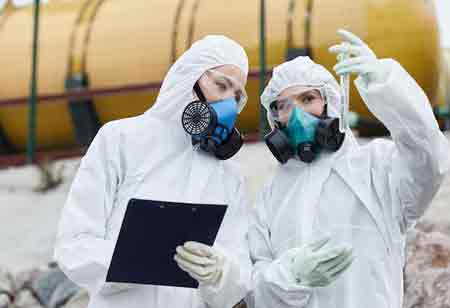Thank you for Subscribing to Environmental Business Review Weekly Brief
Advantages of Utilizing Environmental Site Assessments for Achieving Success
Creating a safe environment is both a legal responsibility and a moral duty, helping to build trust and gain community support for development initiatives.

By
Environmental Business Review | Wednesday, August 20, 2025
Stay ahead of the industry with exclusive feature stories on the top companies, expert insights and the latest news delivered straight to your inbox. Subscribe today.
FREMONT, CA: Environmental site assessments play a critical role in determining a property's environmental condition, particularly regarding potential contamination. They offer valuable insights for developers, investors, property owners, and communities by identifying environmental risks early on. This information helps stakeholders evaluate project feasibility, manage financial risks, and make informed decisions before moving forward.
Environmental site assessments play a significant role in risk mitigation. Properties with environmental contamination can pose substantial legal and financial risks, including liability for cleanup costs and potential health hazards. Mitigating these risks could involve securing environmental insurance, renegotiating purchase prices, or implementing remediation plans. With detailed ecological data, stakeholders can negotiate better terms, plan for necessary remediation, or decide to avoid high-risk properties altogether. They can prevent unforeseen liabilities and ensure the project progresses without costly interruptions.
Environmental laws at various levels mandate strict standards for contamination assessment and remediation. It helps avoid legal penalties and fines and facilitates smoother project approval processes. Stakeholders can ensure their projects are legally sound and avoid regulatory hurdles that could delay or derail development. Undetected environmental contamination can lead to significant financial burdens. Cleanup costs can be excessive, and failing to address these issues before acquisition can severely impact a project's economic viability. It helps identify potential contamination, allowing stakeholders to account for remediation expenses in their financial planning.
The foresight can prevent unexpected costs and enable more accurate budgeting. Properties that have undergone thorough are more likely to secure favorable financing terms, as lenders and investors prefer properties with clear environmental status. It ensures that any environmental issues are identified and addressed by these regulations. Properties with known and addressed ecological conditions often have higher market value than those with unknown or unaddressed contamination issues. Conducting environmental site assessments and following through with necessary remediation enhances a property's value by ensuring it is safe and compliant with environmental standards.
A clean environmental bill of health can expedite property transactions and reduce the time a property remains on the market. Incorporating environmental site assessments into the property development process supports sustainable development goals. Developers can plan projects that minimize ecological impact and promote the sustainable use of resources. It aligns with broader environmental objectives such as reducing pollution, conserving natural resources, and improving public health. Sustainable development practices contribute to the community's well-being and enhance development projects' long-term viability and success. Contaminated sites can pose serious health risks through exposure to hazardous substances.
Environmental site assessments offer many essential benefits for responsible property development and management. They provide the necessary information for informed decision-making, mitigate risks, ensure regulatory compliance, protect financial interests, enhance property value, and promote sustainable development. They contribute to community health and safety. The role of environmental site assessments in the real estate and development sectors will remain critical, underscoring their value in achieving successful and responsible project outcomes.





